Lewis Hamilton v Nico Rosberg: Mercedes' worst nightmare
- Published
Where do they go from here?
That's the key question after the inevitable happened and Mercedes team-mates and increasingly bitter title rivals Lewis Hamilton and Nico Rosberg collided during the Belgian Grand Prix.
There are still seven races of this championship to go and both men remain in the title fight.
Beyond that, the former friends are contracted to work together at least until the end of next year.
Right now, it is hard to imagine them working together at the next race in Italy on 7 September after the tensions that have been simmering within Mercedes all year finally boiled over at one of Formula 1's grandest theatres, the magnificent Spa-Francorchamps circuit.
The collision between the two was the lightest kiss of Rosberg's front wing against Hamilton's rear tyre at the Les Combes chicane.
It appeared to be the smallest of racing incidents. Certainly that is how the stewards viewed it at the time, having watched a few replays and decided there was no need to get involved.
Hamilton's tyre deflated and his car was damaged enough by the flailing rubber as he returned to the pits that he was forced to retire towards the end of the race. Rosberg, meanwhile, continued with damage to his front wing, changed it and fought back up to finish second to Red Bull's Daniel Ricciardo.
Even at that stage, it was a good story.
The two team-mates disputing a private title battle had finally hit each other. All extra spice in a narrative that was unfurling exactly as many suspected it always would.
But then it started to get remarkable.
Live on the BBC, Mercedes boss Toto Wolff branded the incident "unacceptable", squarely blaming Rosberg.
Wolff then hinted Rosberg could face disciplinary action of some sort and said what had occurred at Spa would lead to a change in policy at the team, although he had yet to decide what exactly that would mean.
A couple of hours later, after the two drivers had discussed the incident with Wolff and technical boss Paddy Lowe, Hamilton came out with a bombshell.
According to the Englishman, Rosberg had admitted to colliding with him on purpose.
"He said he could have avoided it," said Hamilton. "He said: 'I did it to prove a point.'"
It's pretty clear what that point was.
So far this year, Hamilton and Rosberg have fought long battles in two races this season, each time Hamilton prevailing.
According to BBC F1 co-commentator David Coulthard, Hamilton is the better racing driver, arguing that Rosberg "knows he can't take it to Lewis in a wheel-to-wheel fight".
It is a view held by many others in F1.
So was this Rosberg trying to disprove it?
The German had certainly felt that Hamilton had over-stepped the mark in their battle in Bahrain in April. He was also unhappy that Hamilton had ignored team orders to let him by in Hungary.
For Rosberg, it appears enough was enough.
But deliberating crashing into Hamilton? Not so, says Wolff.
"Nico felt he needed to hold his line," said the Mercedes boss. "He needed to make a point. He didn't give in. He thought it was for Lewis to leave him space, and that Lewis didn't leave him space.
"For Lewis, it was clearly not him who needed to be aware of Nico.
"So they agreed to disagree in a very heated discussion among ourselves, but it wasn't deliberately crashing. That is nonsense.
"It was deliberately taking into account that if Lewis moves then it could end up in a crash."
Rosberg is lucky all this came out after Sunday's race result had been declared official and the stewards sent home. Had it emerged earlier, he would certainly have been investigated.
He still could be. Under Max Mosley, the old president of the governing body, Wolff would have received a missive on his desk on Monday morning suggesting the team and Rosberg might fancy a trip to FIA HQ in Paris to explain themselves.
Mosley's successor, Jean Todt, has so far taken a less confrontational approach to such matters, but risks looking weak - and setting an awkward precedent - if he does nothing this time around.
For his part, Rosberg took quite a risk in admitting to his team that he had not sought to avoid a clash.
Mercedes have made it clear to both drivers all season that they were happy to let them race on the proviso that they do not hit each other.
That approach will now change, but it is not clear how, with Wolff admitting: "The devil is in the detail."
Whatever they do, Mercedes now have a serious problem on their hands.
A former driver told me after Hungary that the team were "in a mess" after creating "the perfect storm" which was "unstoppable".
That is even more the case now.
Rosberg, with a 29-point advantage in the championship and only 200 points still available, has by far the least to lose if the two drivers crash again. Hamilton cannot afford that to happen, but he has no choice but to attack if he wants to close that deficit.
Hamilton is heading into the final seven races in frustrated mood.
He feels he has suffered more than Rosberg when it comes to reliability - four major failures in qualifying or race compared to one - and is fuming at his team-mate's actions on Sunday.
Add into the mix what happened at Monaco - Hamilton feels Rosberg deliberately went off on his final qualifying lap to prevent him from taking pole - and it is little wonder the Englishman talks about trust.
"When you're out there, you have to trust people," he said. "But I don't really know how to approach the next race."
Whatever orders Mercedes impose on their drivers, how do they control all that emotion?
In the meantime, their worst nightmare is coming to pass.
As Hamilton and Rosberg fought it out off and on the track, Ricciardo was taking his third victory of an increasingly impressive campaign, only one win fewer than Rosberg.
In the last six races, Ricciardo has scored 102 points to Rosberg's 98 and Hamilton's 73 to lie 35 points behind Hamilton in the championship.
Mercedes have more than enough performance to ease off into the distance again, but they have reliability concerns and two drivers at each other's throats.
"It is exactly that point we hoped we would never reach," said Wolff, pledging to make sure there is no repeat of what happened at Spa.
"We have to make sure it never happens again," he added.
It's a nice idea. But, right now, it's hard to imagine how it won't.
- Published24 August 2014
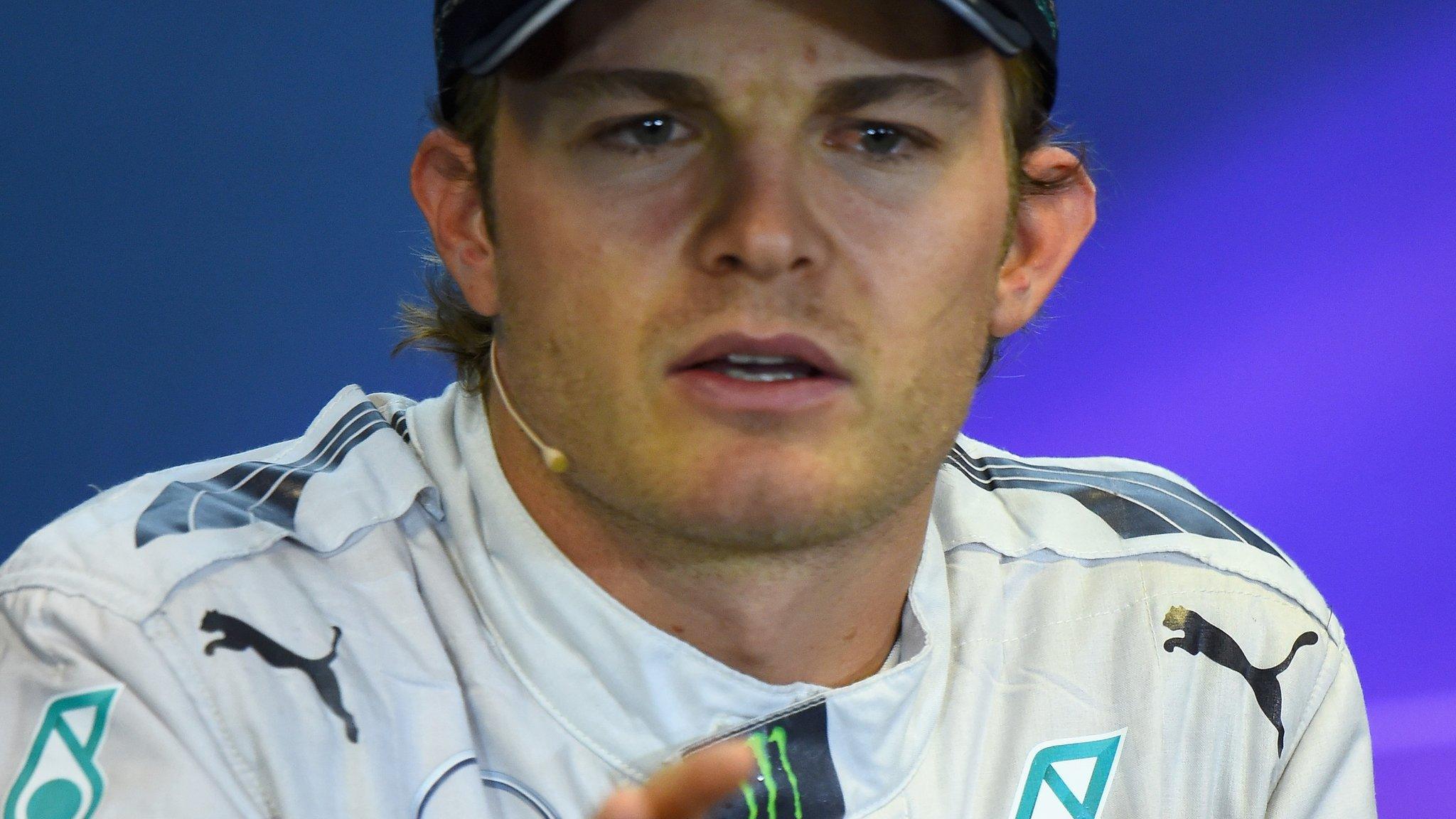
- Published24 August 2014
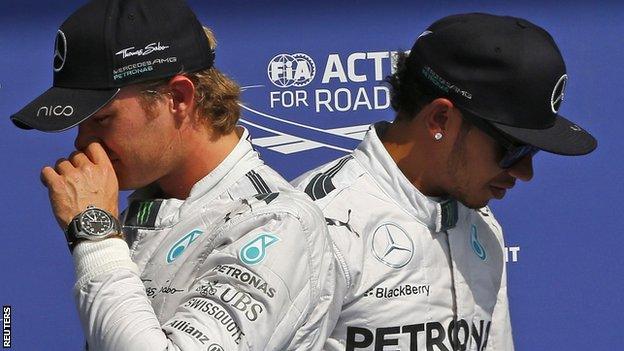
- Published24 August 2014
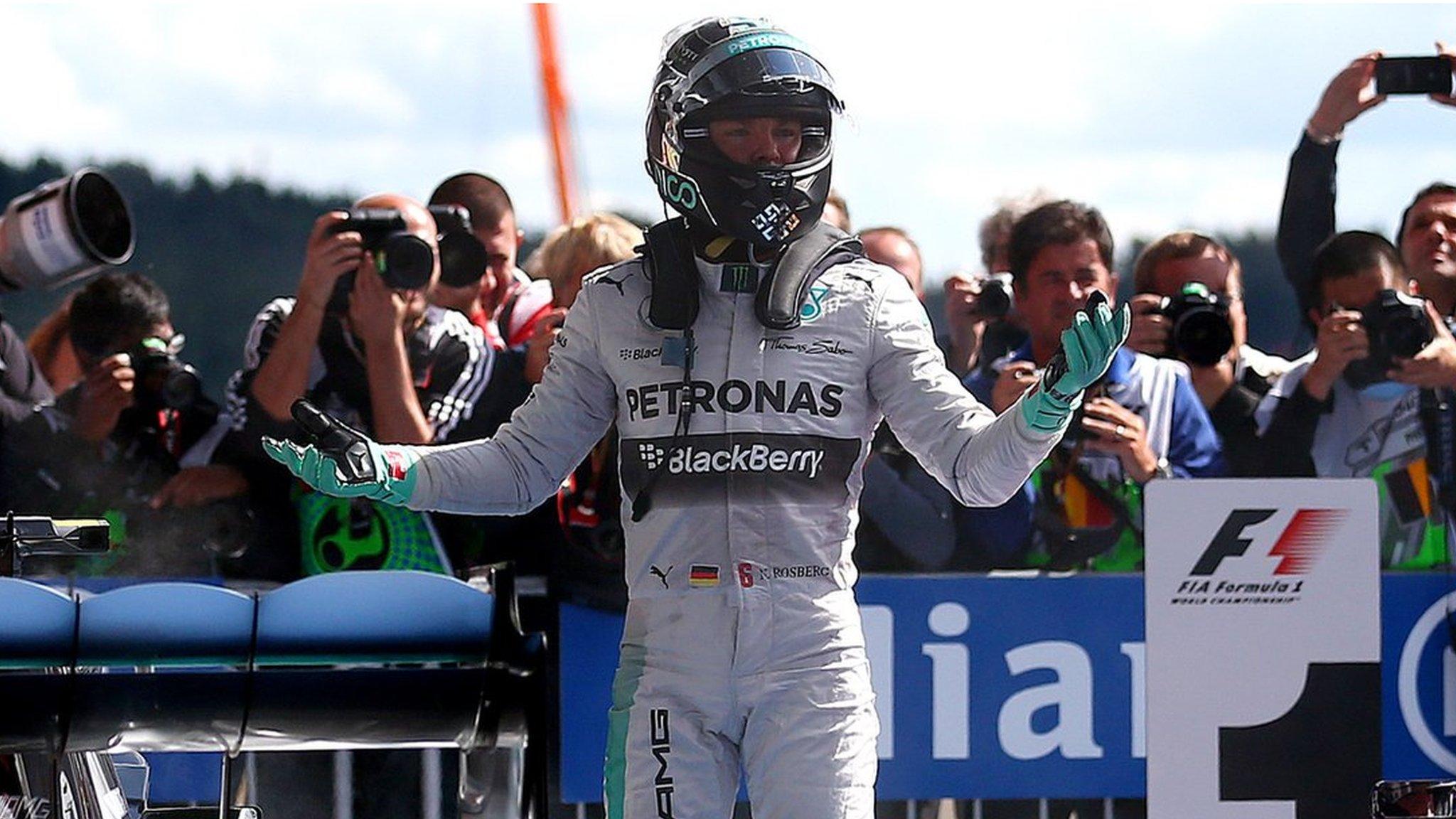
- Published28 July 2014
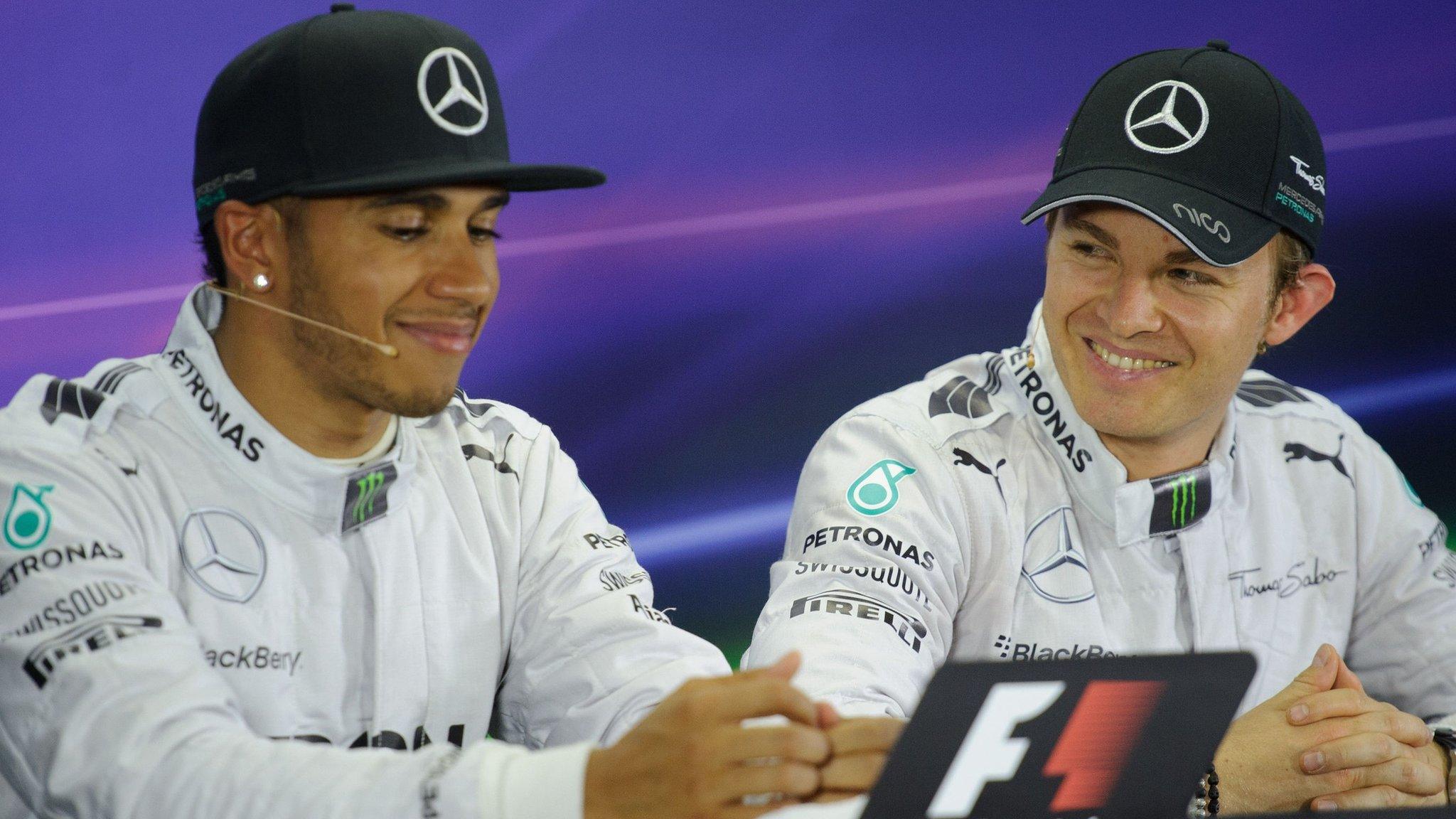
- Published27 July 2014
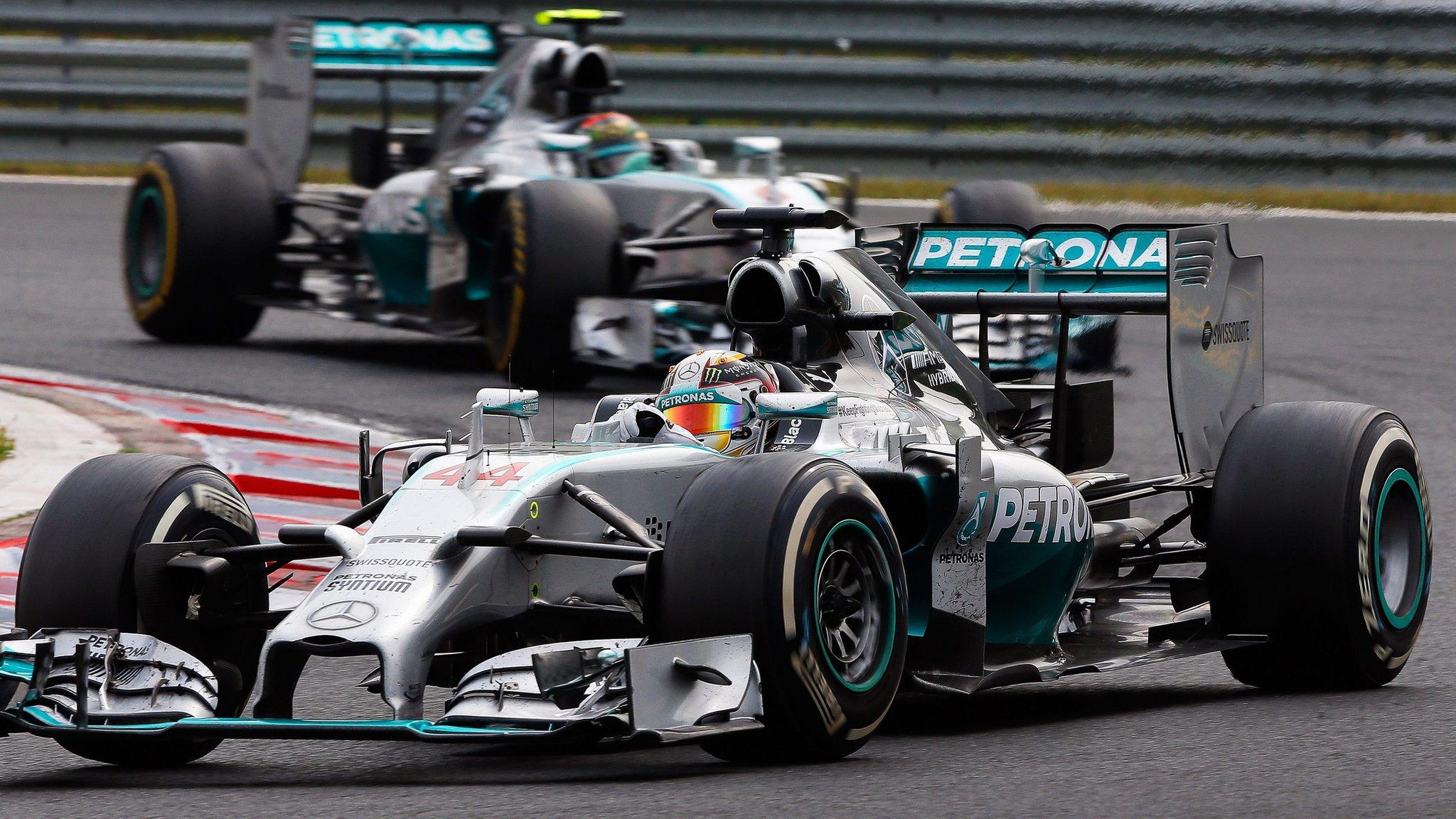
- Published26 February 2019
